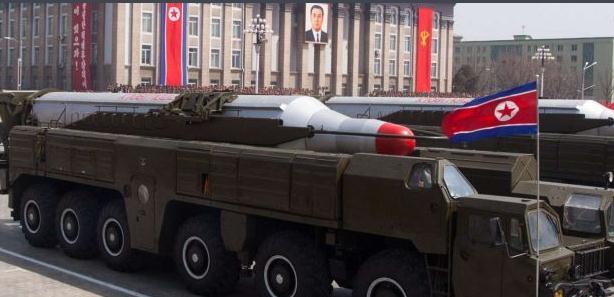


WASHINGTON/BEIJING, April 27 -- The U.S. warning of "other options" against Pyongyang concerning its nuclear and missile programs will further deepen animosity between the two countries and have a negative impact on the Korean Peninsula situation, observers believe.
U.S. State Department spokesman Mark Toner on Tuesday warned that Washington will "look at other options" if the Democratic People's Republic of Korea (DPRK) continues its nuclear and ballistic missile tests.
However, he did not specify what options the United States is considering.
Given the long-standing hostility and distrust between Washington and Pyongyang, tougher U.S. stance will not ease tension on the Korean Peninsula, but create a vicious circle on the issue.
Ling Shengli, secretary-general of the International Security Studies Center at the China Foreign Affairs University, emphasized that compared with sanctions and isolation, engaging Pyongyang and encouraging economic reform could lead the country to abandoning its nuclear weapons.
A great many observers and analysts, among them Jin Canrong, vice president of the School of International Studies at Renmin University, have also noted that any progress toward denuclearization on the Korean Peninsula hinges on improvement in ties between Washington and Pyongyang.
However, in a CBS interview aired Tuesday, U.S. President Barack Obama remained tough, describing the country "a massive challenge."
He defended a plan to deploy the Terminal High Altitude Area Defense missile system on the Korean Peninsula, saying that "so that even as we try to resolve the underlying problem of nuclear development inside of North Korea, we're also setting up a shield that can at least block the relatively low-level threats that they're posing right now."
China and Russia are opposed to the possible deployment of the missile system, which they believe will create a real threat to their security and the stability in Northeast Asia.
White House spokesman Josh Earnest said Tuesday that the international sanctions on the DPRK have not made a desired change in Pyongyang's behavior. "But what we have succeeded in doing is working with the international community to ramp up the pressure on the North Korean government even further."
His words can be indirect evidence of the failure of tit-for-tat retaliation, which will only lead to a lose-lose situation.
It is worth noting that the thorny Iranian nuclear issue has made progress through diplomacy, so the international community should also give the Korean Peninsula conundrum a chance at the negotiating table.
Pyongyang on Sunday announced the test-firing of a submarine-launched ballistic missile. South Korea's military said the missile was fired on Saturday in waters off the DPRK's northeast coast and flew about 30 km.
It is believed that the DPRK might conduct another test before a national congress of the ruling Workers' Party of Korea scheduled for May 6.
The party congress will be the first major conference in 36 years and the first under the current top leader Kim Jong Un.
 Beijing Style: ready for bare legs
Beijing Style: ready for bare legs Top 10 Asian beauties in 2016
Top 10 Asian beauties in 2016 Amazing scenery of Xisha Islands
Amazing scenery of Xisha Islands Enthusiasts perform Kung Fu at Wudang Mountain
Enthusiasts perform Kung Fu at Wudang Mountain Stunning photos of China's fighter jets in drill
Stunning photos of China's fighter jets in drill Old photos record the change of Sichuan over a century
Old photos record the change of Sichuan over a century Asia's longest and highest suspension bridge to open to traffic
Asia's longest and highest suspension bridge to open to traffic China's first interactive robot looks like a beauty
China's first interactive robot looks like a beauty Vietnamese Su-30 fighters fly over Nanwei Island in South China Sea
Vietnamese Su-30 fighters fly over Nanwei Island in South China Sea Top 20 hottest women in the world in 2014
Top 20 hottest women in the world in 2014 Top 10 hardest languages to learn
Top 10 hardest languages to learn 10 Chinese female stars with most beautiful faces
10 Chinese female stars with most beautiful faces China’s Top 10 Unique Bridges, Highways and Roads
China’s Top 10 Unique Bridges, Highways and Roads Affection for young actors takes root, who says you have to be a teen to be a fan?
Affection for young actors takes root, who says you have to be a teen to be a fan? High-end brands closing mainland stores as Chinese spend more overseas
High-end brands closing mainland stores as Chinese spend more overseas Private detectives cash in on China’s rampant marital infidelity
Private detectives cash in on China’s rampant marital infidelity HRW meddles ineptly in deportation case
HRW meddles ineptly in deportation caseDay|Week